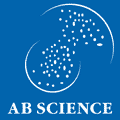Mast Cell Activation Syndrome (MCAS) is a disease caused by inappropriate activation of mast cells, which can lead to mast cell mediator release symptoms with a severity ranging from mild to life-threatening. In this aspect, MCAS is similar to indolent and smoldering systemic mastocytosis (ISM/SSM), however, important differences exist that make MCAS a distinct entity from systemic mastocytosis. In mastocytosis, well-defined mutations result in an aberrant population of mast cells with a marked increased proliferation in tissues, whereas MCAS is driven by greater (ill-defined) mutational heterogeneity that is associated with aberrant mast cell activation but only modest increases in mast cell numbers due to reduced apoptosis.
About Mast Cell Activation Syndrome
Masitinib positioning in Mast Cell Activation Syndrome
Masitinib is developed in severe MCAS. Because masitinib has been designed to be a potent inhibitor of mast cell activation (through its action against wild-type c-Kit, Lyn and Fyn tyrosine kinases), it is uniquely well-suited for the treatment of severe MCAS, unlike other c-Kit tyrosine kinase inhibitors that typically target specific c-Kit mutations that are associated with systemic mastocytosis. There are currently no approved therapies for severe MCAS or drugs in clinical development for this indication.
Current Phase 2 study with masitinib in Mast Cell Activation Syndrome
AB Science received authorization to launch a Phase 2 study in patients with severe mast cell activation syndrome.
